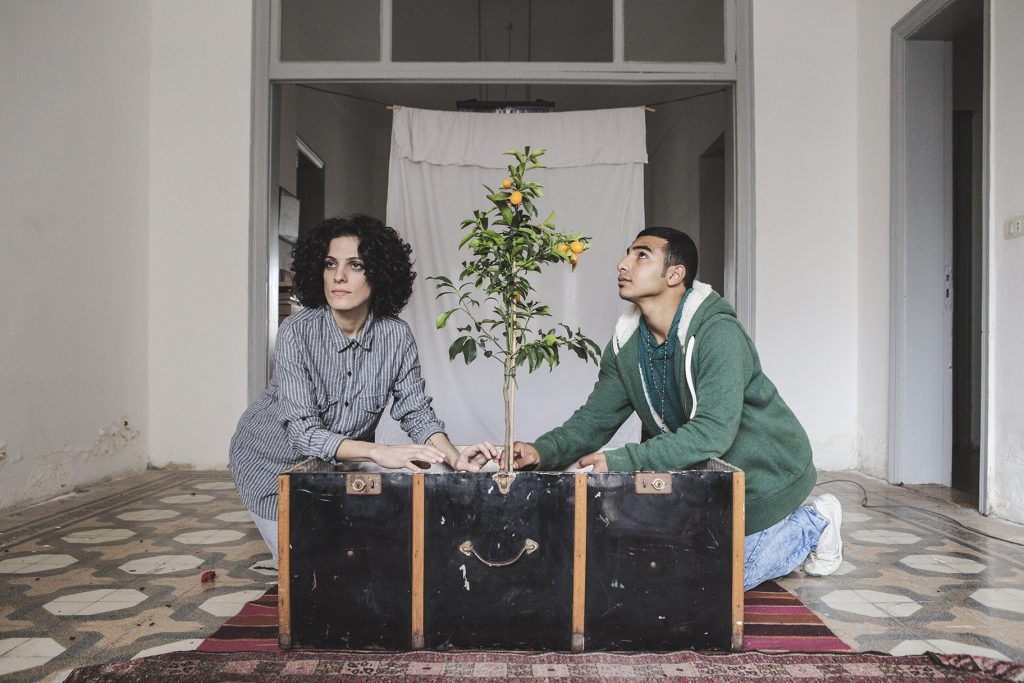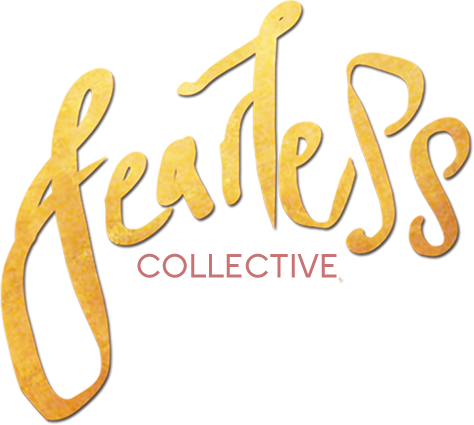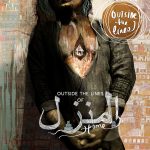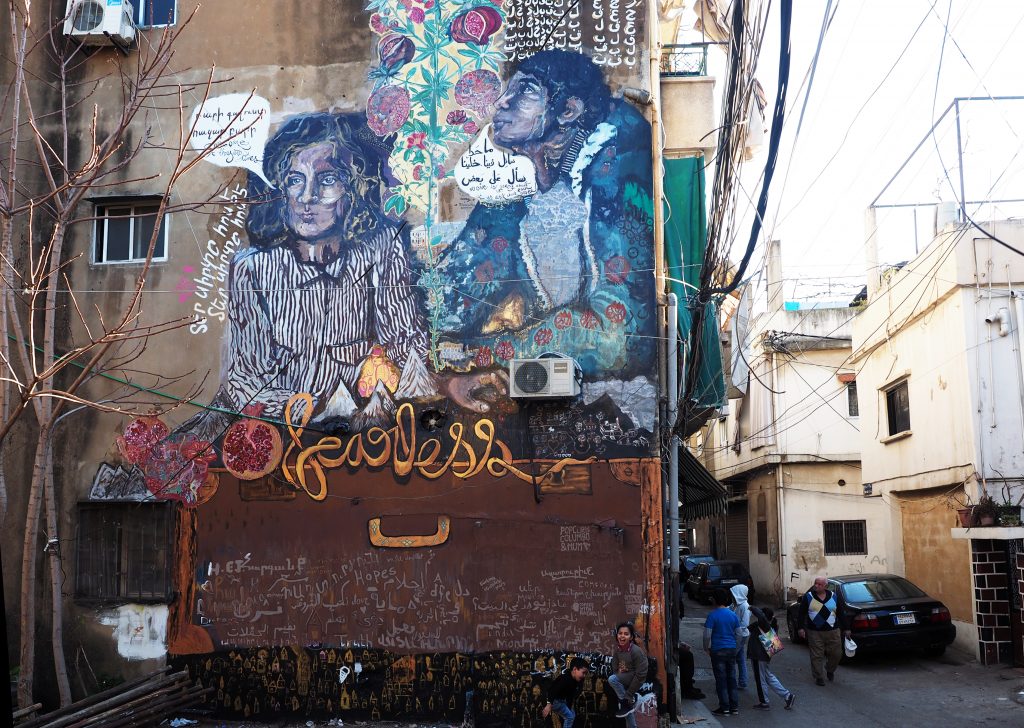
A little nook tucked away at Rue 82 in Bourj Hammoud stands monument to this collective affirmation of home, beyond borders and language. A woman packs her life into a suitcase, with deep extending roots into the earth and says in Armenian- the proverbial բարի գալուստ, հազար բարի: “A thousand time welcome,” while a 17-year-old Syrian boy with maps of ancient cities in his chest, unpacks and looks up at a pomegranate tree growing out of the suitcase, into the sky and affirms: “(when) no one is asking about us, let us ask about each other.”
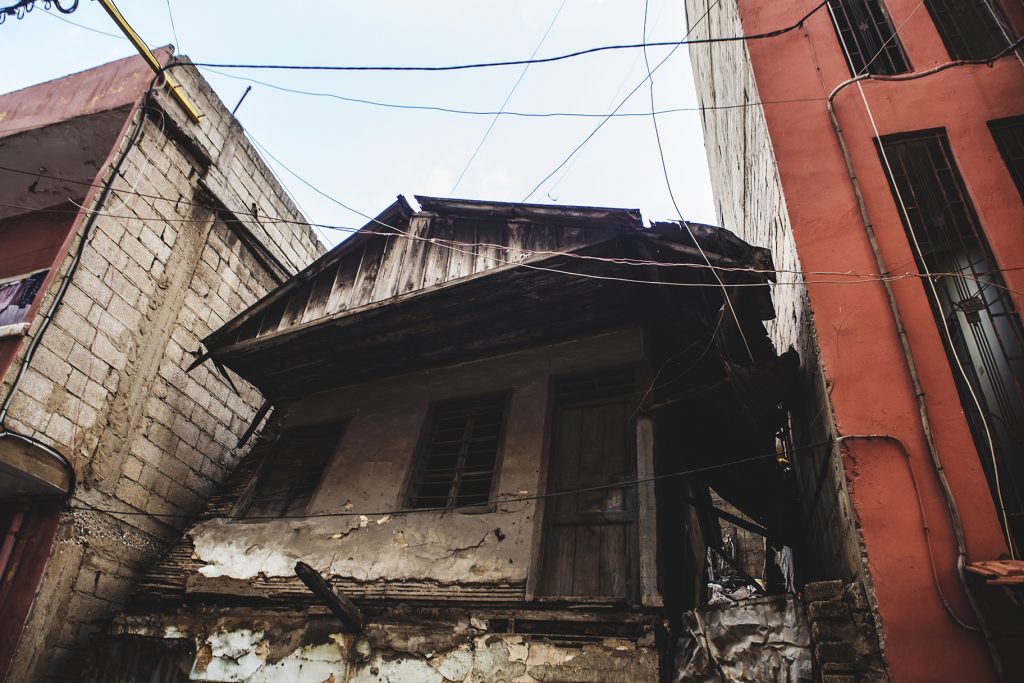
‘A thousand times welcome’ – she said repeatedly, with teary eyes and crimson cheeks. A neighbour, to our mural, she lives in this apartment in Bourj Hammoud with her Syrian-Armenian family, having moved to Beirut after they had to flee Aleppo. They arrived in Beirut, as many like them had arrived here a hundred years ago fleeing a genocide. Between the genocide and a war, almost a hundred years apart, are many stories of people who have made Beirut home. A city of sharp streets and fading bullet holes, high rises and crumbling houses, a city that keeps becoming home, a difficult one, but a home nevertheless.
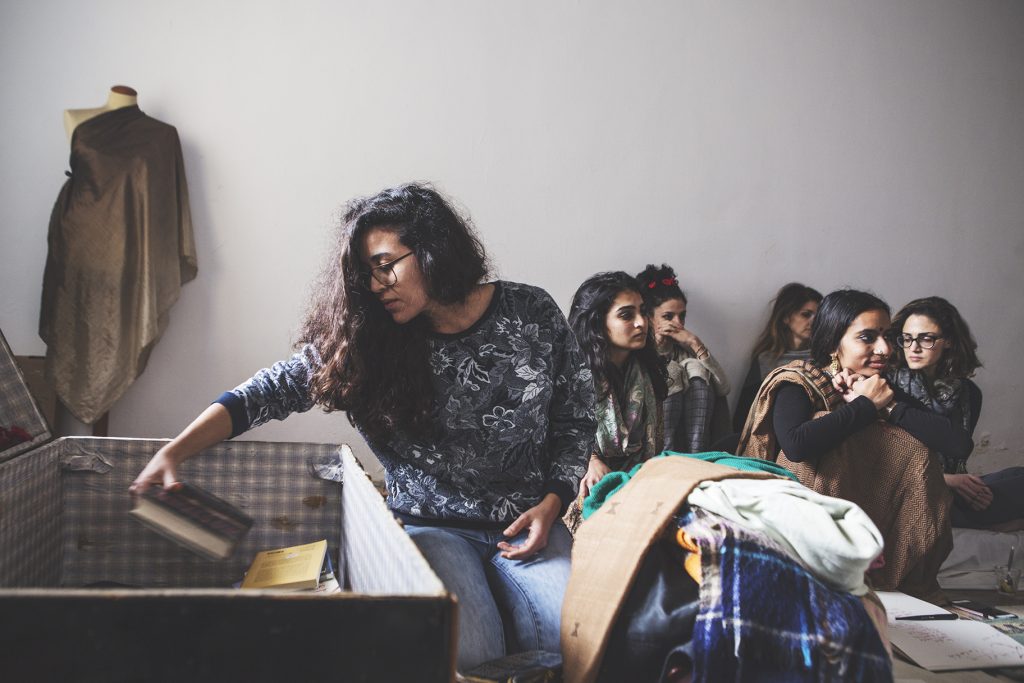 Fearless Collective partnered with FRIDA| and Beyond Borders to create an impossible home in Beirut, where Syrian, Lebanese, Kurdish, Turkish, Armenian, Palestinian, Indian, Ethiopian and Pakistani women and men all lived together, for a week, making art, comparing histories, and holding space for difficult conversations. In our fearless workshop, we explored the ritual of packing and unpacking as a symbolic reference to leaving and making homes. As each of us unpacked a trunk full of each other’s things, we found, what often makes us feel at home is someone saying the words “a thousand times welcome,” a familiar song, a family jewel, oranges that are tiny and tangible, mother tongues and your grandmother’s pomegranate trees.
Fearless Collective partnered with FRIDA| and Beyond Borders to create an impossible home in Beirut, where Syrian, Lebanese, Kurdish, Turkish, Armenian, Palestinian, Indian, Ethiopian and Pakistani women and men all lived together, for a week, making art, comparing histories, and holding space for difficult conversations. In our fearless workshop, we explored the ritual of packing and unpacking as a symbolic reference to leaving and making homes. As each of us unpacked a trunk full of each other’s things, we found, what often makes us feel at home is someone saying the words “a thousand times welcome,” a familiar song, a family jewel, oranges that are tiny and tangible, mother tongues and your grandmother’s pomegranate trees.
